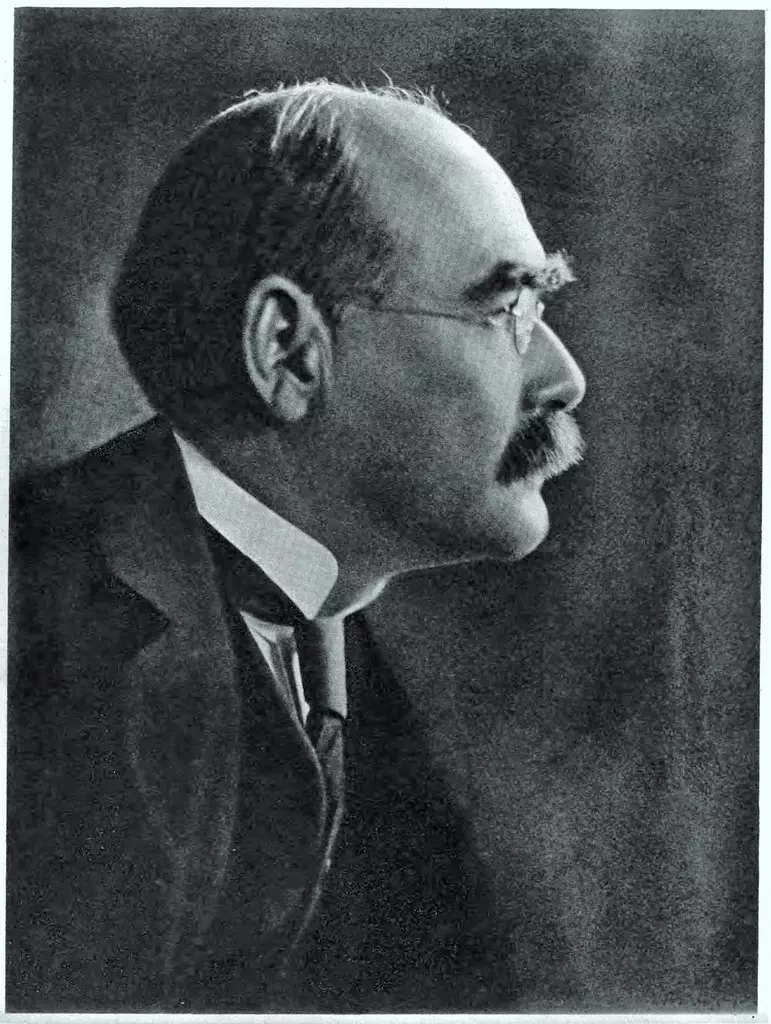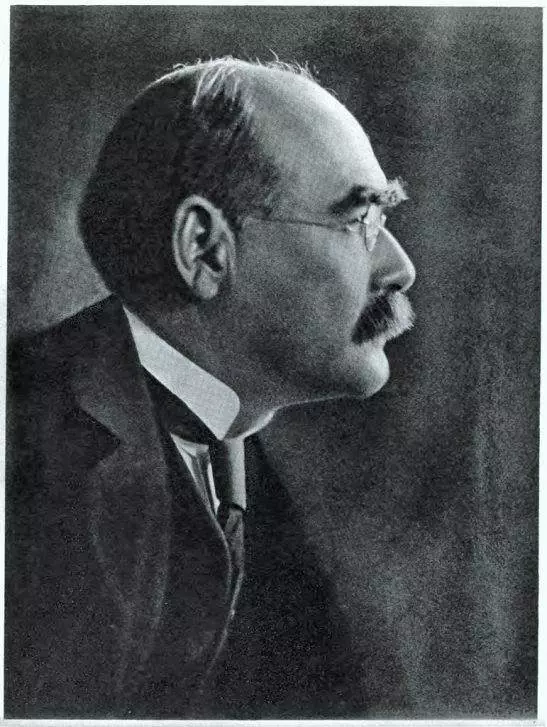Rudyard Kipling is one of the most prominent and influential writers of the 19th and early 20th centuries. He was born in Bombay, India in 1865, but spent most of his childhood in England. Kipling’s writing career spanned over five decades and he produced a vast body of work that includes novels, short stories, poetry, and essays. His works have had a lasting impact on literature, and his influence can be seen in the works of other prominent writers such as J.R.R. Tolkien and George Orwell.
Kipling’s writing was known for its vivid descriptions of life in colonial India, as well as its exploration of themes such as imperialism, war, and patriotism. His most famous works include “The Jungle Book,” “Kim,” and the poem “If.” Kipling was also the first English-language writer to receive the Nobel Prize in Literature, in 1907.

Despite his literary achievements, Kipling’s legacy has been somewhat controversial. His writing has been criticized for promoting British imperialism and for its portrayal of non-white characters. Nevertheless, Kipling remains an important figure in literature, and his work continues to be studied and analyzed to this day.
Table of Contents
Early Life and Education
Rudyard Kipling was born in Bombay, India, in 1865. His parents were both British, and his father, John Lockwood Kipling, was an artist and teacher in the Bombay School of Art. Kipling spent the first five years of his life in India, but when he was six, he and his younger sister were sent to live with a foster family in England while his parents remained in India. Kipling had a difficult time adjusting to life in England and missed his parents and the familiarity of India. He would later draw upon his experiences as a child in his writing, particularly in his stories set in India.
Kipling received his education in England, first at the United Services College in Devon, and later at the University of London. Despite being a gifted student, Kipling struggled with the academic curriculum and dropped out of university after only three years. However, he had already begun to establish himself as a writer, publishing his first collection of poems, “Departmental Ditties and Other Verses,” in 1886 at the age of 21. Kipling’s early writing showed promise, and he would go on to become one of the most celebrated writers of his time.
Literary Career
Kipling’s literary career spanned over five decades and was marked by a prolific output of novels, short stories, poetry, and essays. One of his earliest successes was “Plain Tales from the Hills,” a collection of short stories set in colonial India that was published in 1888. Kipling’s most famous works include “The Jungle Book,” “Kim,” and “Just So Stories,” all of which have become classics of children’s literature. His writing was known for its vivid descriptions of life in India and its exploration of themes such as imperialism, war, and patriotism.
Kipling’s writing was also influenced by his travels and experiences outside of India. He spent time in South Africa, where he wrote about the Boer War, and in the United States, where he wrote about his travels across the country. Kipling was also a keen observer of nature and animals, and many of his stories feature anthropomorphic animals.
In addition to his fiction writing, Kipling was also a prolific poet. He wrote over 600 poems throughout his career, many of which were included in his collections “Barrack-Room Ballads” and “The Seven Seas.” Kipling’s poetry was known for its strong rhythms and its celebration of British values and ideals.
Overall, Kipling’s literary career was marked by a commitment to exploring a wide range of subjects and themes, and by his ability to captivate audiences with his vivid storytelling and imaginative worlds.
Political and Social Views
Rudyard Kipling’s writing was heavily influenced by his political and social views. He was a staunch supporter of British imperialism and believed in the superiority of British culture and values. Kipling’s writing often celebrated the British Empire and portrayed non-white characters as inferior or subservient. He also believed in the importance of duty, honor, and loyalty, and many of his stories and poems explore these themes.
Kipling’s political and social views were controversial, and his writing has been criticized for its imperialistic and racist overtones. His support for the British Empire was particularly problematic in the context of India, where he was seen by some as a defender of colonialism and British oppression. However, Kipling’s views were not entirely one-dimensional, and his writing also explores the complexities of identity and cultural conflict.
Despite the controversy surrounding his political and social views, Kipling remains an important figure in literature, and his work continues to be studied and analyzed for its cultural and historical significance. While some readers may find his views outdated or offensive, others see his writing as a reflection of the attitudes and values of his time.
His Works
Rudyard Kipling was a prolific writer who produced a vast body of work that includes novels, short stories, poetry, and essays. Some of his most notable works include:
Kipling’s first major success came in 1888 with the publication of “Plain Tales from the Hills,” a collection of short stories set in colonial India. These stories showcased Kipling’s vivid descriptions of life in India and his ability to capture the complexities of the British colonial experience.
“The Jungle Book,” published in 1894, is perhaps Rudyard Kipling’s most famous work. A collection of stories featuring anthropomorphic animals, “The Jungle Book” is beloved by children and adults alike for its imaginative and adventurous tales.

In 1901, Kipling published “Kim,” a novel set in colonial India that follows the adventures of an orphaned boy who becomes a spy for the British Empire. “Kim” is a complex exploration of identity, cultural conflict, and the legacy of British imperialism.
Kipling’s poem “If” remains one of his most famous and widely quoted works. Written in 1895, “If” offers a meditation on the qualities that make a person great, including strength, courage, and integrity.
Other notable works by Rudyard Kipling include “Barrack-Room Ballads,” a collection of poetry that celebrates the heroism and sacrifice of British soldiers, and “The Man Who Would Be King,” a novella about two British adventurers who attempt to establish themselves as rulers in a remote region of Afghanistan.
Overall, Kipling’s body of work is characterized by his keen observation of the world around him, his imaginative storytelling, and his exploration of complex themes and ideas. His legacy as a writer remains enduring and continues to inspire readers around the world. Click Here to know more about his works.
Awards and Honors
Rudyard Kipling’s literary achievements were widely recognized during his lifetime. In 1907, he became the first English-language writer to be awarded the Nobel Prize in Literature, in recognition of his contributions to the field of literature. The Nobel committee praised Kipling’s “power of observation, originality of imagination, virility of ideas and remarkable talent for narration.” Kipling’s recognition did not end there, as he was also awarded the Gold Medal of the Royal Society of Literature, the French Legion of Honour, and the Order of Merit, one of the highest honors awarded by the British monarchy.
Kipling’s literary achievements were not limited to awards and honors, however. His work had a profound impact on literature and popular culture, and his stories and poems continue to be celebrated and adapted to this day. “The Jungle Book” has been adapted into numerous films and television shows, and “If” remains one of the most famous and widely quoted poems in the English language.
Overall, Kipling’s contributions to literature were immense, and his recognition and honors were well-deserved. His legacy as a writer and cultural figure continues to inspire and captivate readers around the world.
His Legacy
Rudyard Kipling’s legacy as a writer and cultural figure is complex and multifaceted. On the one hand, his work remains an important part of the canon of English literature, and his contributions to children’s literature in particular have had a lasting impact. Kipling’s stories and poems continue to be celebrated for their vivid descriptions of life in colonial India, their exploration of themes such as imperialism, war, and patriotism, and their imaginative and fantastical worlds.
On the other hand, Kipling’s legacy is also marked by controversy and criticism. His support for British imperialism and his portrayal of non-white characters as inferior or subservient have led some readers to view his work as racist and outdated. Kipling’s legacy is also complicated by his association with British colonialism and his role in perpetuating certain cultural stereotypes.
Despite these criticisms, Rudyard Kipling’s work continues to be studied and analyzed for its cultural and historical significance. His influence can be seen in the works of other prominent writers such as J.R.R. Tolkien and George Orwell, and his stories and poems remain popular with readers around the world. Ultimately, Kipling’s legacy is a testament to the enduring power of literature to shape our understanding of the world around us.
Conclusion
Rudyard Kipling was one of the most prominent and influential writers of the 19th and early 20th centuries. His writing spanned over five decades and encompassed a wide range of genres, from novels and short stories to poetry and essays. Kipling’s work explored a variety of themes, including imperialism, war, patriotism, and the complexities of identity and cultural conflict.
Rudyard Kipling’s literary achievements were widely recognized during his lifetime, and he was the first English-language writer to be awarded the Nobel Prize in Literature. Despite the controversy surrounding his political and social views, Kipling’s legacy as a writer and cultural figure remains complex and multifaceted.
Today, Rudyard Kipling’s work continues to be celebrated and analyzed for its cultural and historical significance. His influence can be seen in the works of other prominent writers, and his stories and poems continue to captivate readers around the world. Ultimately, Kipling’s legacy is a testament to the enduring power of literature to shape our understanding of the world and the human experience.



2 Comments
Pingback: The Sea and the Hills by Rudyard Kipling: A Complete Breakdown - LitGram by MukeshRishit
Pingback: Jungle Book Characters Explained: From Mowgli to Kaa [2025 Guide]